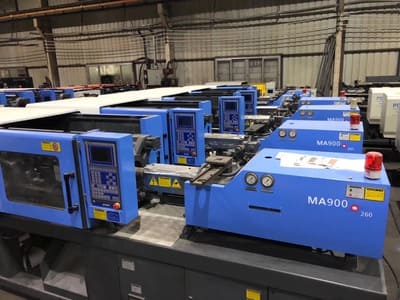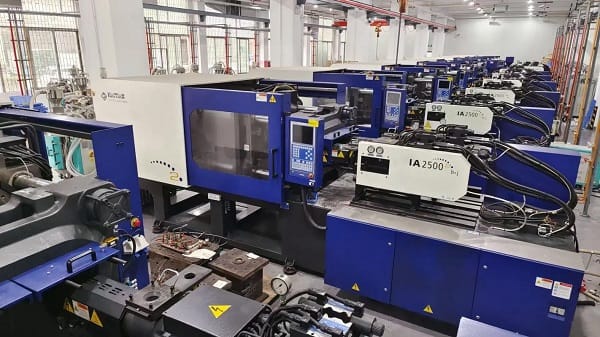In today’s fast-paced manufacturing industry, efficiency, precision, and scalability are the cornerstones of success. Among the many technological advancements that have revolutionized production, injection molding machines stand out as a game-changer. From automotive components to consumer electronics, these machines power industries worldwide by offering high-speed, cost-effective, and sustainable manufacturing solutions. This article explores the cutting-edge advantages of injection molding machines, emphasizing why they remain an indispensable asset for modern production.
Unparalleled Efficiency and Speed
High-Speed Production
One of the most compelling advantages of an injection molding machine is its ability to produce large quantities of identical parts in minimal time. Unlike traditional manufacturing methods that require multiple steps, injection molding machines streamline the entire process into a single automated cycle. Once the mold is set, the machine can produce thousands, even millions, of units with remarkable speed and consistency.
Automation for Maximum Output
Modern injection molding machines leverage automation and robotics to minimize manual labor, reducing production errors and increasing efficiency. Automated systems ensure seamless operations, from material feeding to product ejection, allowing manufacturers to meet high-volume demands effortlessly.

Precision and Consistency at Its Best
Microscopic Accuracy
Manufacturers in industries like medical devices, aerospace, and electronics rely on injection molding machines for their unparalleled precision. Advanced machines can create intricate designs with microscopic tolerances, ensuring every part meets exact specifications. This level of accuracy is nearly impossible to achieve with traditional methods.
Uniform Quality Every Time
Unlike handcrafted processes that may result in slight variations, injection molding machines guarantee consistency across all produced units. Whether it’s the first or millionth piece, the quality remains identical, making it ideal for mass production.
Cost-Effectiveness and Waste Reduction
Reduced Material Waste
Sustainability is a growing concern in modern manufacturing, and injection molding machines help address this issue by minimizing material waste. Unlike CNC machining, which cuts away large portions of material, injection molding utilizes precise quantities of raw material, leaving little to no excess.
Low Labor Costs
With automation reducing the need for extensive manual labor, injection molding machines significantly cut down on labor costs. Fewer workers are required to operate the machines, allowing manufacturers to allocate resources more effectively.
Scalability for Any Production Volume
Whether a company needs a few thousand units or millions, an injection molding machine provides unmatched scalability. The ability to adjust production output without incurring significant additional costs makes it the most economical choice for mass manufacturing.
Versatility Across Industries
Wide Range of Materials
One of the biggest strengths of injection molding machines is their ability to work with various materials, including:
Thermoplastics (ABS, polypropylene, nylon)
Thermosetting plastics
Metal injection molding for high-strength components
Biodegradable plastics for eco-friendly applications
This versatility enables manufacturers to produce products tailored to specific industry needs, from medical-grade devices to high-impact automotive parts.
Customization and Complex Designs
Injection molding machines offer unparalleled design flexibility. From intricate geometries to custom textures, manufacturers can create highly detailed components that would be challenging or impossible to achieve using other manufacturing methods.
Sustainability and Environmental Impact
Energy-Efficient Operations
Modern injection molding machines are designed with energy efficiency in mind. Many models incorporate electric and hybrid technologies that significantly reduce energy consumption compared to traditional hydraulic machines. Lower energy usage translates to lower production costs and a reduced carbon footprint.
Recyclability and Green Manufacturing
The use of recyclable materials in injection molding machines contributes to sustainability efforts. Manufacturers can reuse excess plastic and repurpose defective parts, reducing environmental waste and promoting a circular economy.
Future of Injection Molding Machines
Smart Manufacturing and IoT Integration
The future of injection molding machines is driven by smart technology. IoT-enabled machines can monitor production in real-time, detect defects, and optimize performance automatically. This connectivity enhances efficiency, reduces downtime, and ensures continuous quality improvement.
Advanced Materials and 3D-Printed Molds
Innovations in material science are expanding the possibilities for injection molding machines. The integration of 3D-printed molds allows for rapid prototyping and small-batch production, making the technology more accessible and cost-effective for startups and specialized industries.
There is no doubt that injection molding machines have redefined the manufacturing landscape. Their ability to deliver high-speed, cost-efficient, and sustainable production makes them the backbone of numerous industries. As technology continues to evolve, injection molding machines will only become more advanced, further cementing their role as the most powerful tool in modern manufacturing. For businesses aiming to scale, cut costs, and maintain impeccable quality, investing in an injection molding machine is not just an option—it’s a necessity.
